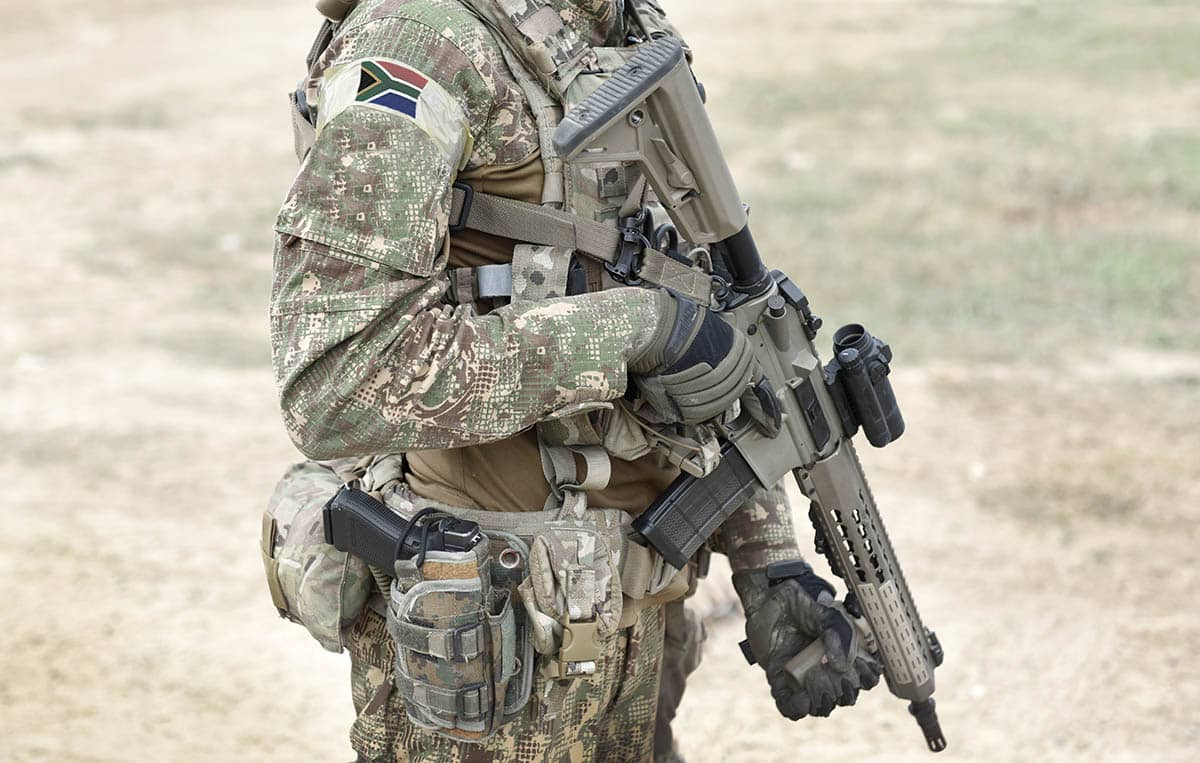South African Rand Breaks Down, at Risk Until Civil Unrest Ends says Investec's Bishop
- Written by: Gary Howes
- GBP/ZAR punctures 20.00
- ZAR in widespread selloff
- Analysts blame civil unrest
- Key to ZAR outlook is rapid easing of tensions

Image © Adobe Images
- GBP/ZAR reference rates at publication:
- Spot: 20.20
- Bank transfer rates (indicative guide): 19.50-19.64
- Transfer specialist rates (indicative): 20.02-20.06
- Get a specialist rate quote, here
- Set up an exchange rate alert, here
The South African Rand continues to lose value amidst a sharp deterioration in sentiment amongst global investors, spooked by the deteriorating security situation in Africa's largest economy.
The Rand fell amidst an escalation of civil unrest triggered by the jailing of former president Jacob Zuma, which has since snowballed into widespread opportunistic looting that has stretched security services and undermined investor confidence.
"The rand has weakened in response to the widescale riots, looting and destruction of property in certain areas in South Africa as the ex President’s supporters are reported to have closed off some roads, set fire to certain shops and looted electronic and other retail goods," says Annabel Bishop, Chief Economist at Investec in Johannesburg.
The decline in sentiment towards the Rand has allowed the Pound-to-Rand exchange rate (GBP/ZAR) to punch through the key 20.00 level, something which this publication was eyeing as a risk in a report out Monday.
The Dollar-to-Rand exchange rate (USD/ZAR) meanwhile broken to its highest level since May at 14.54:
"South Africa's rand is now fighting on three fronts, civil unrest, COVID-19 and U.S. taper risk. The rand took a sizeable hit on Monday as ex-president Jacob Zuma's supporters threatened the economic recovery," says Peter Stoneham, a market analyst on the Reuters currency desk.
Stoneham says unrest following Zuma's incarceration could lean heavily on the currency as wide-scale riots, looting and destruction of property in some areas bring lockdowns of a different kind.
President Cyril Ramaphosa on Monday night confirmed troops would be deployed to the streets in an effort to assist stretched police forces.
"Investors will shy away from the ZAR if there is an escalation of violence and a risk that country-wide law and order collapses," says Stoneham.
The riots erupted in KwaZulu-Natal - Zuma's political heartland - but have since moved to the economic hub of Gauteng.
Ramaphosa said soldiers would be deployed to help quell the unrest gripping the two provinces and troops are operational as of mid-morning Tuesday.
But Investec's Bishop warns "strong official, even military retaliation to the lawlessness could play into the hands of hardcore Zuma supporters as this RET faction seeks to ultimately overthrown the country and regain power, and harsh military/other reaction risks portraying government negatively."
Secure a retail exchange rate that is between 3-5% stronger than offered by leading banks, learn more.
It is being reported by local media that billions of rands worth of insurance claims would now likely be made as shattered businesses look to restock and rebuild.
However, the process to rebuild will take time given the lag between claims being filed and ultimately paid out.
The negative impact on South African economic growth in the third quarter - a time of heightened covid restrictions - will therefore likely be sizeable.
"Unchecked looting, rioting and illegal gatherings in many areas, initially driven by Zuma supporters, and now those joining in on the spoils, is risking the spread of COVID-19, and so a near-term second peaking in the third wave, as well as increased fatalities," says Bishop.
The Rand has been a strong performer in 2021 as global investors favoured South Africa's relative calm and the high returns on offer when compared to other Emerging Market peers.
However, the upsurge in unrest will serve as a timely reminder to investors of the risks of investing in South Africa which continues to struggle with endemic levels of corruption and unemployment.
"The risk is that this spreads, making some municipalities ungovernable, causing Ramaphosa supporters in government to reconsider their positions, and so eroding the political support that has been so slow to build up. The rand is at risk until the situation stabilises," says Bishop.





